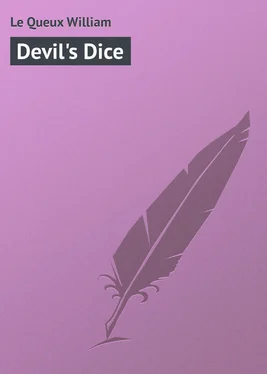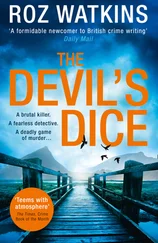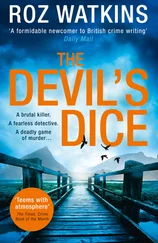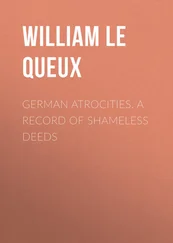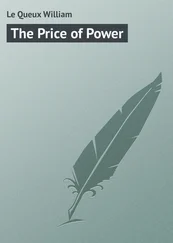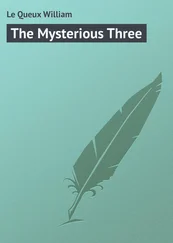William Le Queux - Devil's Dice
Здесь есть возможность читать онлайн «William Le Queux - Devil's Dice» — ознакомительный отрывок электронной книги совершенно бесплатно, а после прочтения отрывка купить полную версию. В некоторых случаях можно слушать аудио, скачать через торрент в формате fb2 и присутствует краткое содержание. Издательство: Иностранный паблик, Жанр: foreign_prose, на английском языке. Описание произведения, (предисловие) а так же отзывы посетителей доступны на портале библиотеки ЛибКат.
- Название:Devil's Dice
- Автор:
- Издательство:Иностранный паблик
- Жанр:
- Год:неизвестен
- ISBN:нет данных
- Рейтинг книги:4 / 5. Голосов: 1
-
Избранное:Добавить в избранное
- Отзывы:
-
Ваша оценка:
- 80
- 1
- 2
- 3
- 4
- 5
Devil's Dice: краткое содержание, описание и аннотация
Предлагаем к чтению аннотацию, описание, краткое содержание или предисловие (зависит от того, что написал сам автор книги «Devil's Dice»). Если вы не нашли необходимую информацию о книге — напишите в комментариях, мы постараемся отыскать её.
Devil's Dice — читать онлайн ознакомительный отрывок
Ниже представлен текст книги, разбитый по страницам. Система сохранения места последней прочитанной страницы, позволяет с удобством читать онлайн бесплатно книгу «Devil's Dice», без необходимости каждый раз заново искать на чём Вы остановились. Поставьте закладку, и сможете в любой момент перейти на страницу, на которой закончили чтение.
Интервал:
Закладка:
“From your heart-broken husband – Stuart.”
Then, turning it over, I read in a distinctly feminine hand the strange exhortation —
“Seek, and you may find.”
What did it mean? Was it an actual message to me from the grave? Did it not appear like a declaration from my dead love herself that some mysterious crime had been committed, and that she left its elucidation in my hands? I became lost in bewilderment.
The inscription, purporting to be written by myself, was not in my handwriting, and I was puzzled to divine its meaning. That it had been penned at a date prior to the mysterious woman’s words appeared certain, as the lines were almost obliterated. Yet on reflection I saw that this fact might be accounted for if that side of the card had been uppermost, and thus more exposed. But the mysterious words, “Seek, and you may find,” were written in a different ink, upon which the action of the weather had had but little effect. The exhortation stood out plainly before my wondering eyes. By whose hand had it been traced? True, it was not addressed personally to me, yet so ominous were the words that I could not rid myself of the conviction that they were meant as an appeal to me.
Why the wreath had been so carefully placed upon the grave, as if it were a tribute from myself, was an inscrutable mystery; and the five firmly-written words on the reverse of the card contained a mystic meaning that I could not follow.
For a long time I remained there until night closed in and the wintry mists gathered; then, detaching the card and placing it in my pocket-book, I wended my way between the white, ghostly tombs towards the cemetery gate, plunged deep in thought.
Suddenly, as I turned a corner sharply, I came face to face with an ill-dressed man, who had apparently been lurking behind a great marble monument. In the gloom I could not distinguish his features, and as he turned and walked in the opposite direction I concluded that he was a grave-digger or gardener, so dismissed the incident from my mind. Yet half an hour later, while waiting on the platform of Woking Station, a man who passed me beneath a lamp gave me a swift inquisitive look. His strange expression attracted my attention, and as I turned and watched his retreating figure it seemed familiar. Then I remembered. It was the same individual who had apparently been watching my movements beside Sybil’s grave. Was he “shadowing” me?
Again I passed him, but he was wary, and bent feigning to eagerly scan a time-table, thereby hiding his features. Nevertheless, before the train arrived I managed by means of a ruse to obtain an uninterrupted view of his pale, sad-looking countenance.
At first I was prompted to approach him boldly and demand the reason he watched my actions, but on reflection I became convinced that my suspicions were groundless, and that after all he was merely a lonely mourner like myself. Perhaps he, too, had come from London to visit the last resting-place of some dearly-loved friend; perhaps, even while I viewed him with unjust suspicion, he had actually been sympathising with me. No, I felt certain that my apprehensions were absurd, and that the man had no sinister motive.
Alone in my room some hours later I placed the card carefully in the fender to dry, and sat smoking and thinking over the strangely ominous words upon it.
I could not rid myself of the conviction that my well-beloved had been the victim of foul play. The words “Seek, and you may find” rang for ever in my ears, yet in face of the declaration of the doctor I had no proof that murder had actually been committed. I could discover no report of an inquest having been held, and as the police had declined to assist me I knew that I must work single-handed and unaided.
Noticing that the card was now dry, I knocked the ashes from my pipe, then slowly stooping, picked it up. I turned it over to re-read the mysterious words of entreaty, but a cry of dismay escaped me when next instant I found the back of the card a perfect blank. On that side not a trace of writing remained.
The puzzling mystic sentence had faded. The words had been wholly obliterated as by some unseen hand.
The card fell from my nerveless fingers.
Presently it occurred to me that by again damping it the mysterious entreaty might be rendered visible, and, taking the ewer that Saunders had placed beside the tantalus stand, I dipped the precious document in water. For half an hour I alternately wetted it and carefully dried it with my handkerchief, but all effort to restore the writing proved unavailing. The surface became rubbed by continued immersions, but the words had utterly vanished, as if by magic.
Some hours afterwards I found myself doubting if I had ever actually seen those strange words, and wondering whether after all they were not a mere chimera of my disordered imagination. So strangely ominous were they that I could not help feeling a trifle uncertain that they had actually existed, and I remember that as I sat brooding over my sorrow I feared lest I had been the victim of one of those strange hallucinations which I had heard were precursory of insanity.
Twice I visited the grave of my dead love, but inquiries of the cemetery-keeper elicited no clue. Times without number I felt prompted to explain the strange circumstances to Jack Bethune, but always hesitated, deeming silence the best course. Whether this secrecy regarding my heart-sorrow was beneficial to my interests, I cannot say, but the occurrence of at least one incident caused me self-congratulation that my friends were unaware of the strange drama that wrecked my happiness and overshadowed my life. It is, alas! true, as François Coppee has said, “ Pour le mélancolique, le soleil se couche déjà le matin .”
Chapter Five
Dora’s Engagement
One night Jack dashed into my chambers and carried me off to a reception at the house of John Thackwell, the well-known Lancashire millionaire, at Hyde Park Gate. He would hear no excuses, for Dora was to be there, and he pointed out that I had not yet congratulated her upon her engagement. This fact alone induced me to accompany him, but, truth to tell, I had only once before accepted Thackwell’s hospitality, and on that occasion had been terribly bored.
Thackwell had risen from a carding-hand to be sole proprietor of extensive mills at Oldham, and a dozen other great spinning mills in the neighbourhood of Manchester. This Lancashire cotton-king was bluff, honest, and unassuming, and still retained all the peculiarities of the dialect of his youth. He had tried to enter the gate of Society by the Parliamentary pathway, but the electors of Bamborough had returned a young sprig of the aristocracy by a narrow majority, notwithstanding the fact that the cotton-king had built a fresh wing to one of the hospitals, and presented the town with a brand new red-brick free library. In chagrin he had come to London, bought one of the finest mansions overlooking Hyde Park, and was now endeavouring to enter the charmed circle by entertaining all and sundry on a scale lavish even for millionaires.
Although the bluff old bachelor was fond of placing his “J.P.” after his name, dropping his “h’s,” and referring on inopportune occasions to the fact that when a lad he had assisted to build his great mill at Oldham by carrying hods of mortar up a ladder, he was nevertheless popular among a certain set. Many scheming and impecunious mothers with titles and marriageable daughters coveted his wealth, and it was no secret that several of the men registered in “Debrett,” who “looked in” at his monthly functions, were indebted to him for substantial financial assistance.
On arrival, we found the great magnificently-furnished rooms crowded almost to suffocation by a brilliant but decidedly mixed throng. Some of the men who nodded to us were high-priests of Mammon, officers who lounged in clubs without any visible means of subsistence, and idlers about town; but there was also a fair sprinkling of those leisurely well-dressed people who constitute what is known as London, and I noticed at once that on the whole the guests were of a much better set than when I had before partaken of the millionaire’s hospitality. Society resembles a bal masqué, where the women never unmask themselves.
Читать дальшеИнтервал:
Закладка:
Похожие книги на «Devil's Dice»
Представляем Вашему вниманию похожие книги на «Devil's Dice» списком для выбора. Мы отобрали схожую по названию и смыслу литературу в надежде предоставить читателям больше вариантов отыскать новые, интересные, ещё непрочитанные произведения.
Обсуждение, отзывы о книге «Devil's Dice» и просто собственные мнения читателей. Оставьте ваши комментарии, напишите, что Вы думаете о произведении, его смысле или главных героях. Укажите что конкретно понравилось, а что нет, и почему Вы так считаете.
